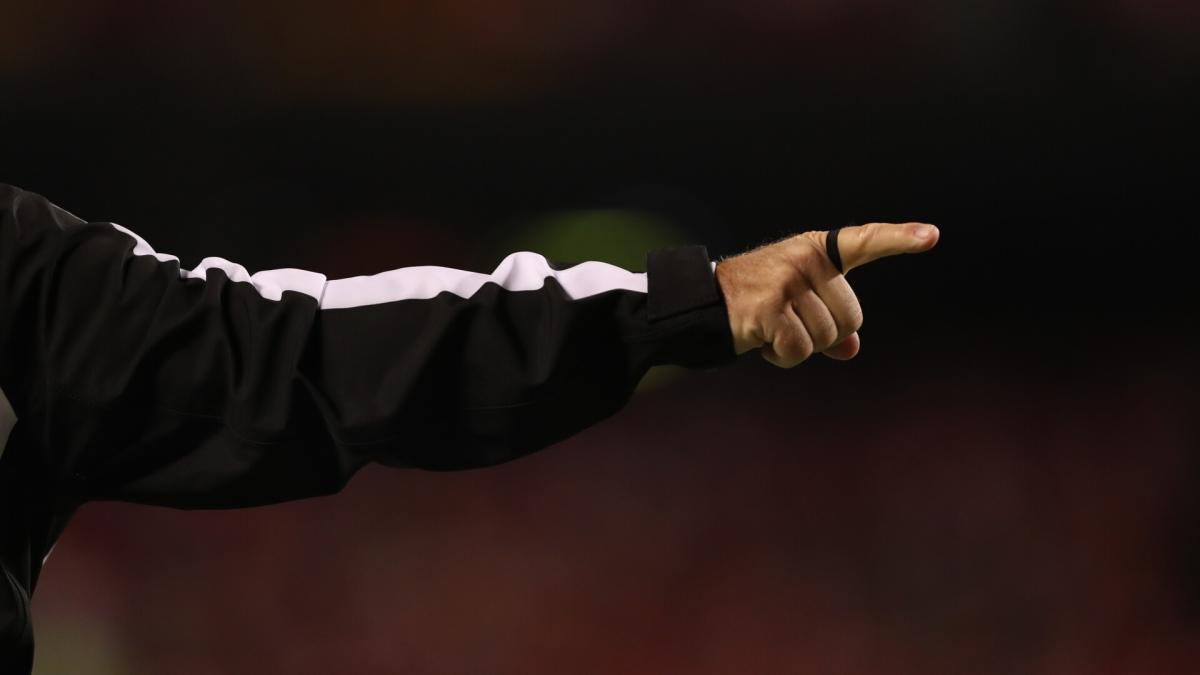Sports
Low morale, confusion among officials is a symptom, not the disease

NFL officiating has been a problem for years. The NFL continues to be in denial about it.
The problem is money. As former V.P. of officiating Dean Blandino told #PFTPM several years ago, the league doesn’t properly value the job he held. It’s a tactful way of saying the league is cheap.
And if the league is cheap when it comes to the person who runs officiating, it’s fair to conclude the league is cheap when it comes to the rest of officiating.
Why aren’t officials full-time employees? Because the league would have to pay them a lot more than they’re currently paid. Period.
It’s a thankless job. The gratitude comes from the revenue. The Commissioner gets paid as much as he does in part because he’s a pincushion for the oligarchs lurking behind the curtain. During football season, the officials become targets for scrutiny, too. Paying them more money would make it easier to keep their heads down and their mouths shut as their names are dragged through the muck and the mud of anti-social media, and beyond.
As a result, there’s nothing about a recent item from Kalyn Kahler of TheAthletic.com that is or should be surprising. It’s great information, a revealing look at how cheapness impacts the folks doing the work. But it’s a symptom, not the disease.
The disease is greed, plain and simple. The NFL — which 12 years ago loudly insisted that replacement officials would do the job just as well as locked-out officials who dared to ask for more — doesn’t see the connection between paying more money for officiating and getting tangible value in return.
It’s the same mindset that has caused them to strip NFL Network down to old games and Zoom-based shows that don’t require the expenses of a studio. Massive revenues don’t matter. Pennies are being pinched wherever and however they can be.
The NFL currently is dangling the shiny object of a long-overdue (but still far too tentative) embrace of technology to distract from the problems with officiating. That’s how the Commissioner shrugged off the issue when appearing on Pat McAfee‘s show on the Friday of draft week, pointing out that people complain about the full-time officials in basketball and hockey.
This ignores the basic fact that, for the NFL, the complaints would have less credibility if the NFL was doing everything it could to improve and enhance officiating. Full-time officials. Complete and total UFL-style transparency.
The league refuses to acknowledge that the fears articulated by the Commissioner when they hated gambling have come to fruition, now that they’re in bed with the sports books.
From 2012: “If gambling is permitted freely on sporting events, normal incidents of the game such as bad snaps, dropped passes, turnovers, penalties, and play calling inevitably will fuel speculation, distrust, and accusations of point-shaving or game-fixing.”
More and more fans are attributing “normal incidents of the game” to foul play. The NFL’s biggest current challenge, even if it won’t admit it, is to spend the money necessary to create an environment in which fans see questionable calls as “normal incidents of the game,” and not as “this game is rigged.”
The change will happen after the first major NFL controversy of the era of legalized sports betting. Until it does, the league will keep stuffing its pockets with cash while refusing to spend what’s needed to keep that controversy from ever occurring in the first place.





